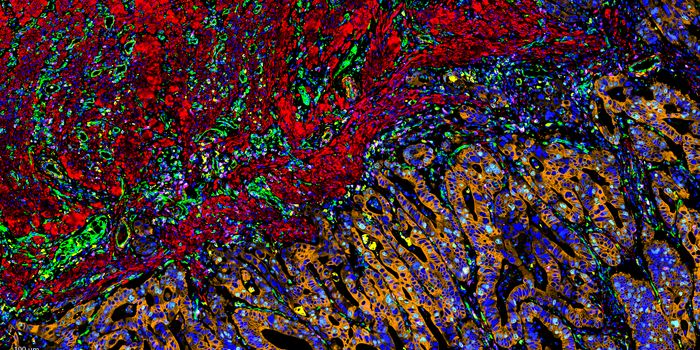Engineered Immune Cells Improves Anti-Cancer Response
Scientists have developed a way to engineer immune cells that specifically target tumors. The application of engineering cells first appeared in the 1980s, but the concept has significantly progressed over the last few decades. This approach of engineering a patient’s cells as a form of therapy allow the immune system to specifically target the tumor and limit off-target affects.
Chimeric antigen receptor (CAR) T cells is an immunotherapy that takes patient T cells and edits them to target the tumor. The cells are then reinfused to accurately and effectively eliminate tumor growth. Immunotherapy is a general classification of cancer treatments that refers to the redirection of the immune system toward a disease or infection. T cells are responsible for the identification and elimination of infected cells and other diseases. Therefore, they are the optimal cell to engineer for robust and durable antitumor immunity. While scientists are working to engineer other cell types, CAR T cell therapy have been shown to have improved efficacy in multiple types of blood or hematological malignancies.
CAR T cell therapy in solid tumors is less effective. Unfortunately, the environment around the tumor has a complex network of various cell types combined with proteins and other molecules that inhibit CAR T cell efficacy. As a result, these CAR T cells cannot function and contribute to tumor progression. Scientists are currently working to improve CAR T cell therapy and develop stronger anti-cancer treatments.
A recent article in Nature Biomedical Engineering, by Dr. Caroline Arber and others, demonstrated how a computational platform can design novel receptors on CAR T cells to improve antitumor response. Arber is an Associate Professor in the Department of Oncology at the Ludwig Institute for Cancer Research Lausanne. Her work focuses on developing novel targeted immunotherapies in patients with hematologic malignancies. Arber and her team conduct experiments with a wide range of immunotherapies analyzing the immune response.
Arber’s platform is designed to detect signals within the tumor and enhance CAR T cell activity. Researchers found that developing synthetic receptors on CAR T cells can stimulate the cell and elicit critical antitumor T cell function by converting tumor signals into co-stimulatory signals. What makes this different than other CAR T cell therapy is that the synthetic receptors developed by the computational platform are able to react to external stimuli. In this case, the receptors can dynamically change shape in response to signaling in the tumor and show researchers how signals can travel through these synthetic receptors. These receptors are called tumor microenvironment-sensing switch receptors (T-SenSERs).
The team created two sets of T-SenSERs that respond to separate proteins secreted from the tumor. The two proteins selected based on the best-performing simulations and lab tests included “VEGF” and “CSF1”, which promote tumor progression. Consequently, CAR T cell therapy developed with T-SenSERs is able to control tumor growth and prolong survival in various mouse models of cancer. Interestingly, researchers could further fine tune the receptors to dictate CAR T cell activity. This new method to develop CAR T cells has the potential to significantly improve therapy and prolong survival in patients with cancer.
Article, Nature Biomedical Engineering, Caroline Arber, Department of Oncology, Ludwig Institute for Cancer Research Lausanne








